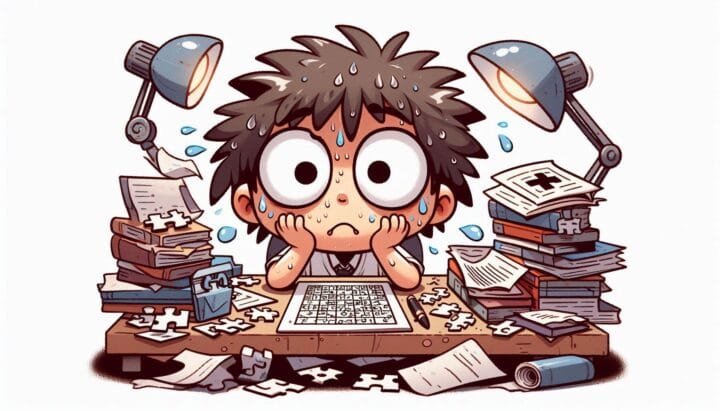The Impact of Stress on TMJ Disorders: Understanding the Connection
Table of Contents

Introduction
Have you ever noticed your jaw feeling tense or painful during stressful times? You’re not alone. The link between stress and temporomandibular joint (TMJ) disorders is more significant than many realize. In this comprehensive guide, we’ll explore how stress can contribute to TMJ disorders, the symptoms to watch out for, and effective ways to manage both stress and TMJ issues. Whether you’re dealing with jaw pain or simply want to understand the connection better, this article will provide valuable insights into the complex relationship between stress and your jaw health.
The Impact of Stress on TMJ Connection: An Overview
Stress is like an unwelcome guest that can affect various parts of our body, including our jaw. But how exactly does stress contribute to TMJ disorders?
Understanding TMJ Disorders
Before we dive into the stress connection, let’s briefly explain what TMJ disorders are. Think of your jaw joint as a complex hinge that allows you to talk, chew, and yawn. When this hinge doesn’t work properly, it can lead to a range of uncomfortable symptoms.
How Stress Enters the Picture
Stress acts like a domino effect in your body. When you’re stressed, your muscles tense up, including those around your jaw. This tension can set off a chain reaction that leads to TMJ problems.
The Physical Impact of Stress on Your Jaw
Stress doesn’t just affect your mind; it has tangible effects on your body, particularly your jaw area.
Teeth Grinding and Clenching
One of the most common ways stress contributes to TMJ disorders is through teeth grinding and clenching, also known as bruxism. Imagine your jaw as a nutcracker. When you’re stressed, you might unconsciously clench your jaw or grind your teeth, putting excessive pressure on this delicate joint.
Muscle Tension
Stress can cause the muscles around your jaw to tighten up, much like a rubber band being stretched too far. This constant tension can lead to pain and discomfort in the TMJ area.
Stress-Induced Behaviors That Affect TMJ Health
Stress doesn’t just affect us physically; it can also change our behaviors in ways that impact our jaw health.
Poor Posture
When we’re stressed, we often hunch our shoulders and crane our necks, especially if we’re working long hours. This poor posture can throw off the alignment of your spine and, consequently, your jaw.
Dietary Changes
Stress can lead to changes in eating habits. Some people may reach for hard, crunchy foods as a stress-relief mechanism, while others might chew gum excessively. Both of these habits can overwork the jaw joint.
Recognizing Stress-Related TMJ Symptoms
How can you tell if stress is affecting your TMJ? Look out for these common signs:
- Jaw pain or tenderness
- Difficulty opening or closing your mouth
- Clicking or popping sounds when moving your jaw
- Headaches, especially around the temples
- Ear pain or ringing in the ears
The Vicious Cycle: How TMJ Pain Can Increase Stress
Interestingly, TMJ disorders can also contribute to increased stress levels, creating a vicious cycle. The pain and discomfort from TMJ issues can lead to:
- Sleep disturbances
- Difficulty eating or speaking
- Social embarrassment due to jaw clicking or limited mouth opening
These factors can, in turn, increase your stress levels, potentially worsening your TMJ symptoms.
Breaking the Cycle: Stress Management for TMJ Health
Now that we understand how stress can contribute to TMJ disorders, let’s explore some effective ways to manage both:
Relaxation Techniques
Practicing relaxation techniques can help reduce overall muscle tension, including in your jaw. Try deep breathing exercises or progressive muscle relaxation.
Mindfulness and Meditation
Mindfulness practices can help you become more aware of when you’re clenching or grinding your teeth, allowing you to consciously relax your jaw.
Regular Exercise
Physical activity is a great stress-buster. It releases endorphins, which are natural pain relievers, and can help reduce muscle tension throughout your body.
Seeking Professional Help
While self-management techniques are valuable, sometimes professional help is necessary.
When to See a Doctor
If you’re experiencing persistent jaw pain, difficulty opening your mouth, or if TMJ symptoms are interfering with your daily life, it’s time to consult a healthcare professional.
Treatment Options
A healthcare provider may recommend:
- Custom-fitted mouthguards to prevent teeth grinding
- Physical therapy to improve jaw mobility
- Stress management counseling
- In some cases, medication or minimally invasive procedures
Lifestyle Changes for Long-Term TMJ Health
Making some simple lifestyle adjustments can go a long way in managing both stress and TMJ disorders:
- Maintain good posture
- Avoid chewing gum or biting on hard objects
- Practice good sleep hygiene
- Eat a balanced diet rich in stress-reducing foods
Conclusion
The connection between stress and TMJ disorders is clear, but it’s not a one-way street. While stress can contribute to TMJ issues, managing your jaw health can also help reduce stress levels. By understanding this relationship and implementing stress-reduction techniques alongside TMJ care, you can break the cycle and improve your overall well-being.
Remember, your jaw health is an important part of your overall health. If you’re experiencing TMJ symptoms or struggling with stress, don’t hesitate to seek help. With the right approach, you can find relief and get back to enjoying life without jaw pain or stress holding you back.
Take the first step today. Whether it’s practicing a relaxation technique or scheduling an appointment with a healthcare provider, every action counts towards better jaw health and stress management.
FAQs
- Q: Can TMJ disorders caused by stress go away on their own?
A: While mild TMJ symptoms might improve with stress reduction and self-care, persistent or severe symptoms often require professional treatment. It’s best to consult a healthcare provider for proper diagnosis and management. - Q: How quickly can stress lead to TMJ problems?
A: The timeline can vary for each individual. Some people might notice TMJ symptoms after a particularly stressful event, while for others, it may develop gradually over time with chronic stress. - Q: Are there any specific foods that can help reduce TMJ pain caused by stress?
A: Soft, anti-inflammatory foods can be helpful. These include fruits, vegetables, lean proteins, and omega-3 rich foods like fish. Avoiding hard, crunchy, or chewy foods during flare-ups can also provide relief. - Q: Can stress-related TMJ disorders affect children and teenagers?
A: Yes, children and teenagers can also experience TMJ disorders related to stress. Academic pressure, social challenges, or family issues can contribute to teeth grinding and jaw clenching in younger individuals. - Q: Is it possible to have TMJ disorders without feeling stressed?
A: Yes, while stress is a significant contributing factor, TMJ disorders can also be caused by other factors such as jaw injuries, arthritis, or structural issues with the jaw joint. A healthcare professional can help determine the specific cause in each case.
Citations:
[1] https://www.ncbi.nlm.nih.gov/pmc/articles/PMC3556284/
[2] https://www.nassoolsennapolitano.com/the-connection-of-tmd-mental-illness-and-stress/
[3] https://enticare.com/2021/03/05/are-stress-anxiety-related-to-tmj/
[4] https://www.ncbi.nlm.nih.gov/pmc/articles/PMC6251286/
[5] https://www.tmjplus.com/the-truth-about-stress-and-tmj-disorder/
[6] https://www.tmjsleep.com/post/can-stress-cause-tmj-disorder
[7] https://johnagarzadds.com/stress-tmj/
[8] https://mhnpc.com/2021/11/09/psychological-distress-triggered-by-tmj-dysfunction/














Post Comment